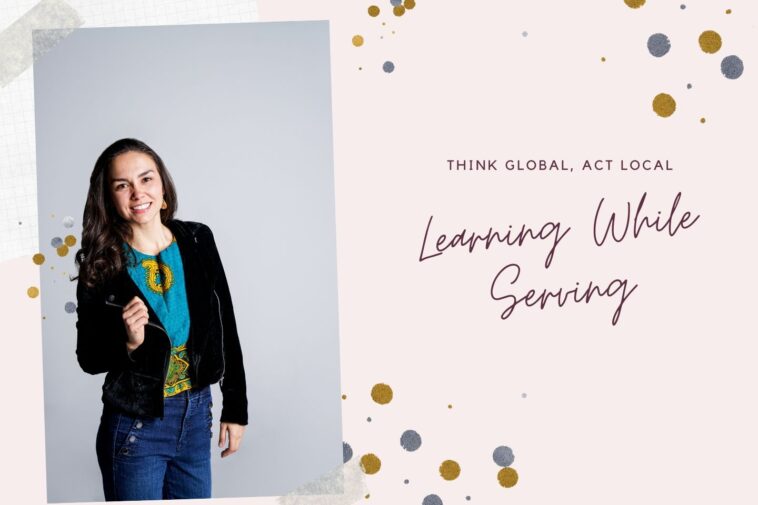Photo By Kayleigh Omang
Mugire Amahoro!
As we are confined in our healthy bubbles to prevent the spread of COVID-19, I wanted to interview someone who has pierced her social and geographical bubble to make this world a bigger compassionate village.
Zoë Absey is a servant leader who spent two years in my homeland of Rwanda with the Peace Corps. I always find it amazing to hear impressions of my country through the refreshing lens of non-Rwandans.
Fargo is fortunate to have Zoë wave its banner proudly wherever she travels and the world is fortunate to have Zoë be a global citizen making society better, one intentional act of service at a time!
Until our humble paths cross,
Stay Healthy!
-Alex Cyusa
1) Give us a brief history of Peace Corp and what got you to apply?
Peace Corps was started in 1961 by President John F. Kennedy at the University of Michigan. The organization would send trained American men and women to foreign nations to assist in development efforts. There were 750 volunteers for the first group that went to 13 nations in 1961.Peace Corps has three goals:
1. To help the people of interested countries in meeting their need for trained women and men
2. To help promote a better understanding of Americans on the part of the peoples served
3. To help promote a better understanding of other peoples on the part of Americans.
I wanted to do better, be more and use my skills to help others.
2) Tell us about your journey’s growth and lessons learned living in North Dakota, Minneapolis and Rwanda.
Through my journey I have learned to leap before looking, to apply for the things you think are out of your reach, say yes to activities you normally wouldn’t and not be afraid of change. I have grown in how I see the world and how I approach different situations. I am thankful I have had a wonderful and supporting family with me along the way. I am hoping that I can use what I learned to better myself, my family and open up minds about what is out there and how we can truly help each other.
3) Where does Peace Corps operate and what communities does it serve? How did it shape your career aspirations?
Peace Corps serves in over 60 countries around the world. We go to countries that ask for our services. We listen to what the country wants and needs, which makes what we do more sustainable. Rwanda shaped my career aspirations in many ways. I went in not knowing what I wanted and came out changing my career path to Social Work rather than teaching.
Along with that, I was able to see how refugee camps work and created relationships with many wonderful people who worked at the camp. I realized that maybe doing humanitarian work would be more my passion than teaching.
4) How was it leaving Fargo to go to Rwanda? How about coming back: any reverse culture shock?
The night before I left for Rwanda I was a mess; all the unknowns and how long the two years were going to be. Now here I am sitting back in Fargo after having two years in Rwanda under my belt. I did a lot in two years and in the whole picture, two years is a short amount of time. Take the leap to make the change or just make the most of what you have. It goes fast. I think what was more emotionally draining was coming back to Fargo.
Coming back to a land of abundance and realizing I didn’t have to watch how much toilet paper I was using…Anyways it was hard seeing how wasteful we are in the States. I was overwhelmed by little things; I couldn’t make a decision because there were just too many choices. But, things turn normal with time. I am reconnecting with friends and starting the next chapter, but I won’t lie, it was difficult.
5) Why should people read about outside the Midwest world and the interconnectedness between regions of the world?
I know it’s hard to care sometimes about what is outside your bubble. But what happens in the outside world is important, it matters. Get involved, read an article you usually wouldn’t. It may spark a new interest or just give you a different look at the world. A lot goes on out there that we don’t see and maybe if we all took a minute to look out, it could make a difference.
6) Were there any misconceptions of safety before you arrived in Rwanda (media impacting your opinion)?
Before going to Rwanda, many people asked me if I had heard about what happened in 1994 and asked if it was safe for me to go there. Valid question considering many don’t hear global news especially about a small landlocked country in East Africa unless it’s bad news.
After arriving and doing some research, I realized that I felt safer in my village in Rwanda than in the States. Stereotypes are dangerous, it’s hard not to use them but do research and create your own opinions and, if it’s possible, to go see for yourself. When we put places or people in bubbles it’s hard to get out of those stereotypes. Don’t put places or people in bubbles!
7) What did you learn in Rwanda that you can apply here in Fargo?
I learned how to be self-reliant and how to make do with less. Coming back after two years and having to start over with my clothes and objects, I realized that I went two years without many things I thought I needed. I am trying to be more aware of what I buy and if I actually need it or just want to go and shop; obviously still something I am learning.
I also am hoping I can become more involved in the community and help brainstorm and be a part of making Fargo more diverse and friendly and to create a safe place for New Americans and others more than just surface level.
8) How do you dismantle the “White Savior Complex” when serving communities in other regions of the globe?
I’m still learning about this one. I would say if you want to work abroad, research “voluntourism.” It is a real concern in this work. I would say research in general, be educated about the culture. Make real relationships with your community members and don’t go into it thinking you are saving the world, because most places don’t need or want saving. They want help and resources so they can do it on their own. Be flexible and acknowledge when you are wrong and that just because of your race or nationality that doesn’t mean you know all.



